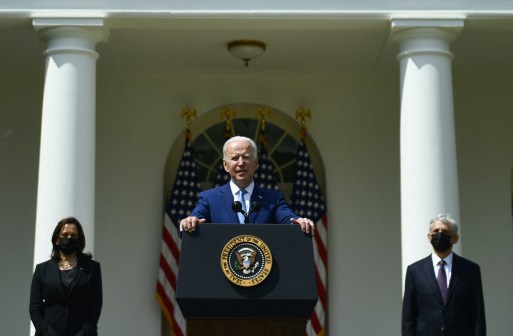US, UK governments offer $1.6M for tech that trains AI while preserving privacy

The U.S. and U.K. governments launched a competition series Wednesday offering $1.6 million in prize money for developing privacy-enhancing technologies allowing artificial intelligence models to be trained with sensitive data safely.
Entrants will create federated learning solutions that prevent organizations’ raw data from being revealed, shared or combined as it’s used to train AI improving financial crime detection, forecasting a person’s risk of infection during a pandemic, or both.
The series was announced in 2021 at the Summit for Democracy, which will showcase winning solutions in the financial crime and public health emergency tracks, or generalized solutions, when President Biden convenes it in early 2023.
“This important initiative reflects our common purpose of developing technologies and driving innovation in a manner that reinforces our commitment to and expression of democratic values and the fundamental right to privacy,” said Alondra Nelson, outgoing director of the White House Office of Science and Technology Policy, in the announcement.
The financial crime prevention track is aimed at the problem of international money laundering — a $2 trillion-a-year challenge, according to U.N. estimates — and will supply entrants with realistic but synthetic global transaction data created by financial messaging service SWIFT. Solutions should preserve privacy while facilitating information sharing and collaborative analytics to detect anomalous payments.
Entrants in the track will be afforded the opportunity to engage with international regulators: the Financial Crimes Enforcement Network and the U.K.‘s Financial Conduct Authority, Information Commissioner’s Office, and National Economic Crime Centre.
The pandemic response track is intended to strengthen global readiness for current and future disease outbreaks by providing entrants with a synthetic, regional population dataset from the University of Virginia’s Biocomplexity Institute in designing secure infection risk forecasting solutions.
Entrants in the track will be able to contact the Centers for Disease Control and Prevention and the U.K.’s National Health Service and Data and Analytics Research Environments.
“Building on decades of [National Science Foundation] research investment in the field, these prize challenges will accelerate the translation of game-changing privacy-enhancing technologies,” said Sethuraman Panchanathan, NSF director, in a statement. “In this way, these prize challenges … illustrate the synergy of foundational research and translational activities in moving research to practice.”




